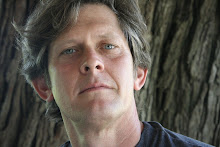Michael Pollan, author of In Defense of Food: An Eater’s Manifesto, penned an open letter in the New York Times Magazine to the next "Farmer in Chief" outlining the negative consequences of our current food policy and offering up some healthy ideas about how we can bring about positive change in the way we eat - and save the planet along the way.
From the article:
After cars, the food system uses more fossil fuel than any other sector of the economy — 19 percent. And while the experts disagree about the exact amount, the way we feed ourselves contributes more greenhouse gases to the atmosphere than anything else we do — as much as 37 percent, according to one study. Whenever farmers clear land for crops and till the soil, large quantities of carbon are released into the air. But the 20th-century industrialization of agriculture has increased the amount of greenhouse gases emitted by the food system by an order of magnitude; chemical fertilizers (made from natural gas), pesticides (made from petroleum), farm machinery, modern food processing and packaging and transportation have together transformed a system that in 1940 produced 2.3 calories of food energy for every calorie of fossil-fuel energy it used into one that now takes 10 calories of fossil-fuel energy to produce a single calorie of modern supermarket food. Put another way, when we eat from the industrial-food system, we are eating oil and spewing greenhouse gases. This state of affairs appears all the more absurd when you recall that every calorie we eat is ultimately the product of photosynthesis — a process based on making food energy from sunshine. There is hope and possibility in that simple fact.
Check out the entire article here:
http://www.nytimes.com/2008/10/12/magazine/12policy-t.html?_r=1&scp=1&sq=Michael%20Pollan%20letter%20farmer%20in%20chief&st=cse&oref=slogin
Subscribe to:
Post Comments (Atom)





1 comment:
And factory farming is NOT sustainable. Most everyone knows that, but nobody seems to care.
What happens when they finally exhaust the land, as they surely will? What happens when our water resources are polluted beyond repair?
Post a Comment